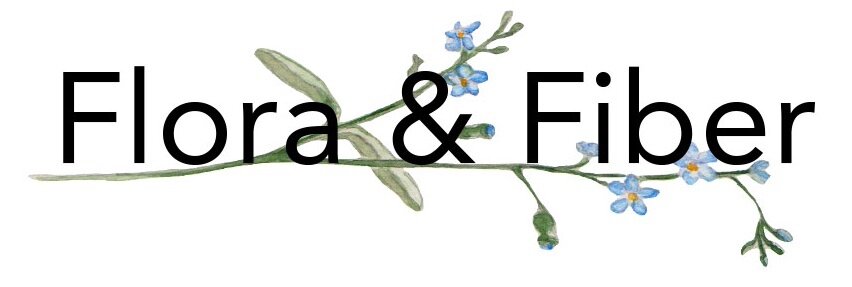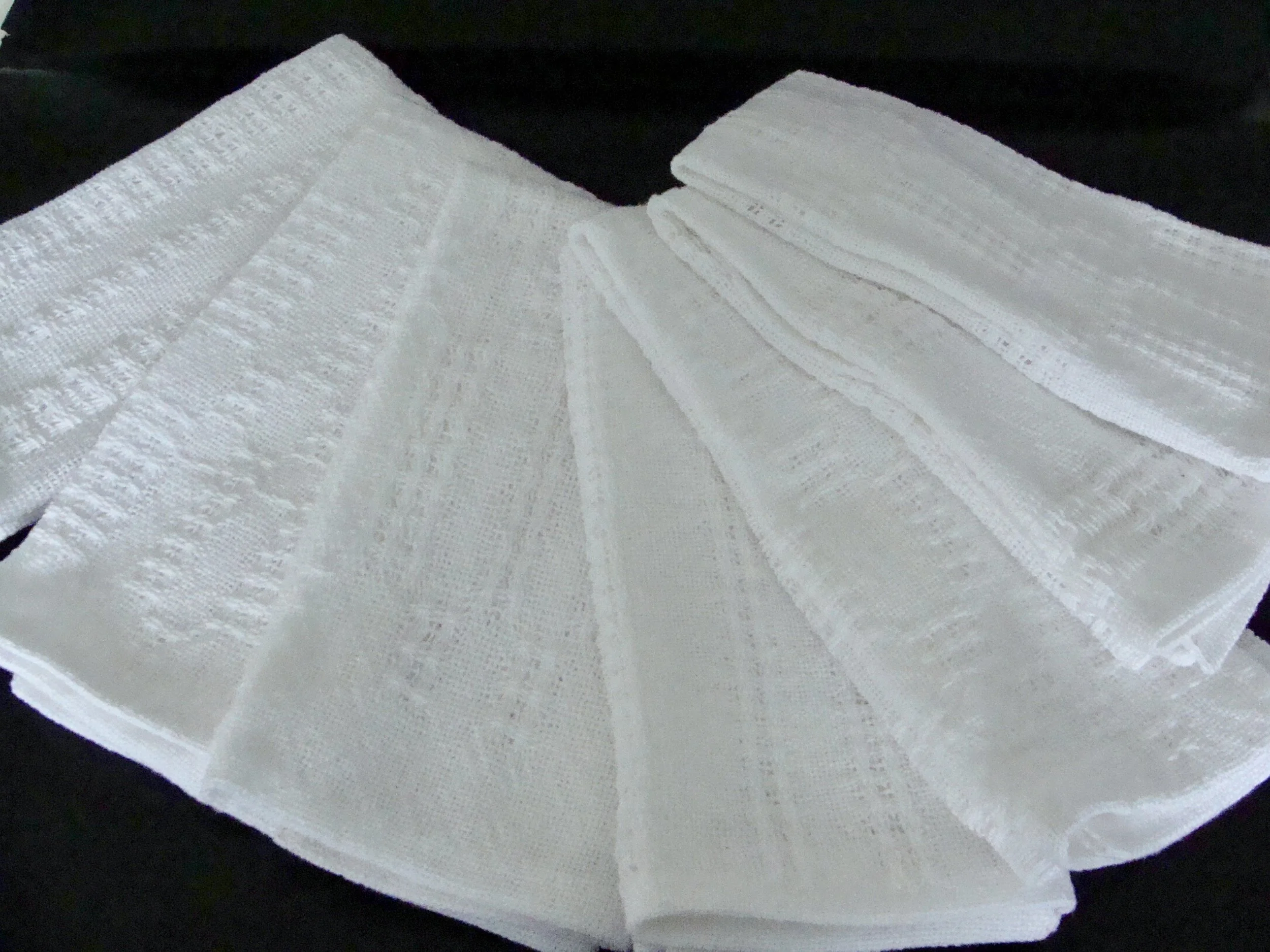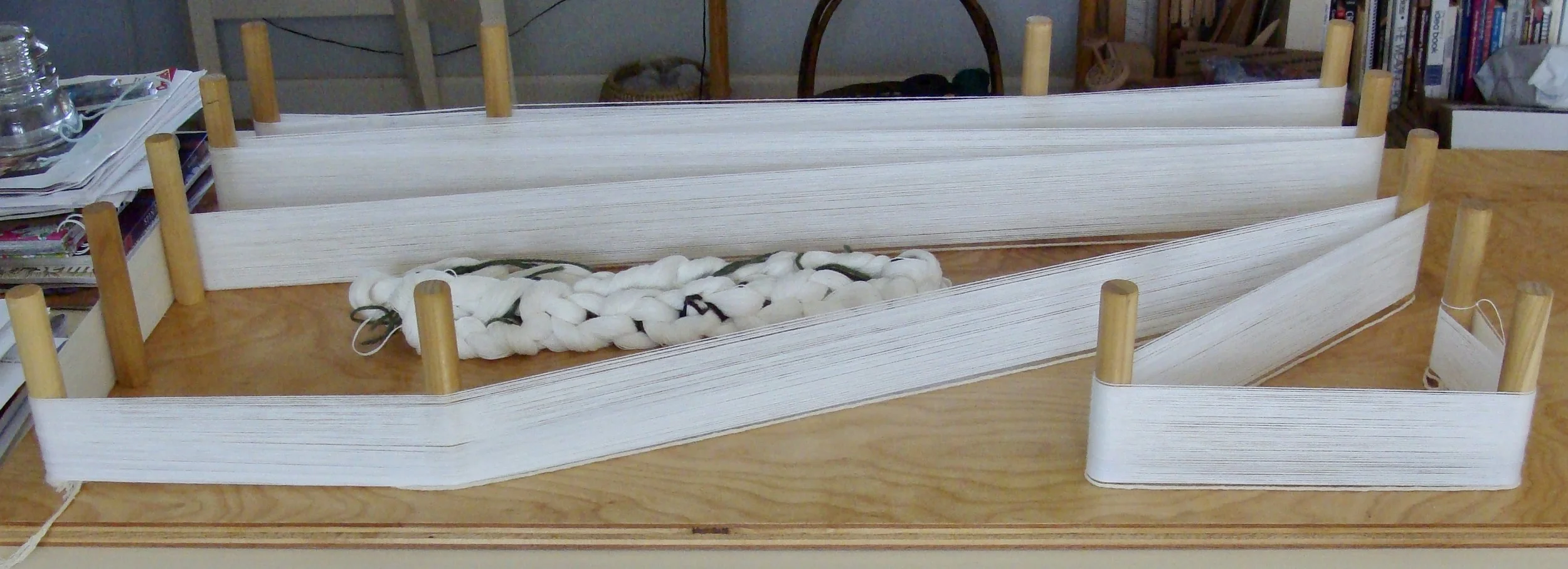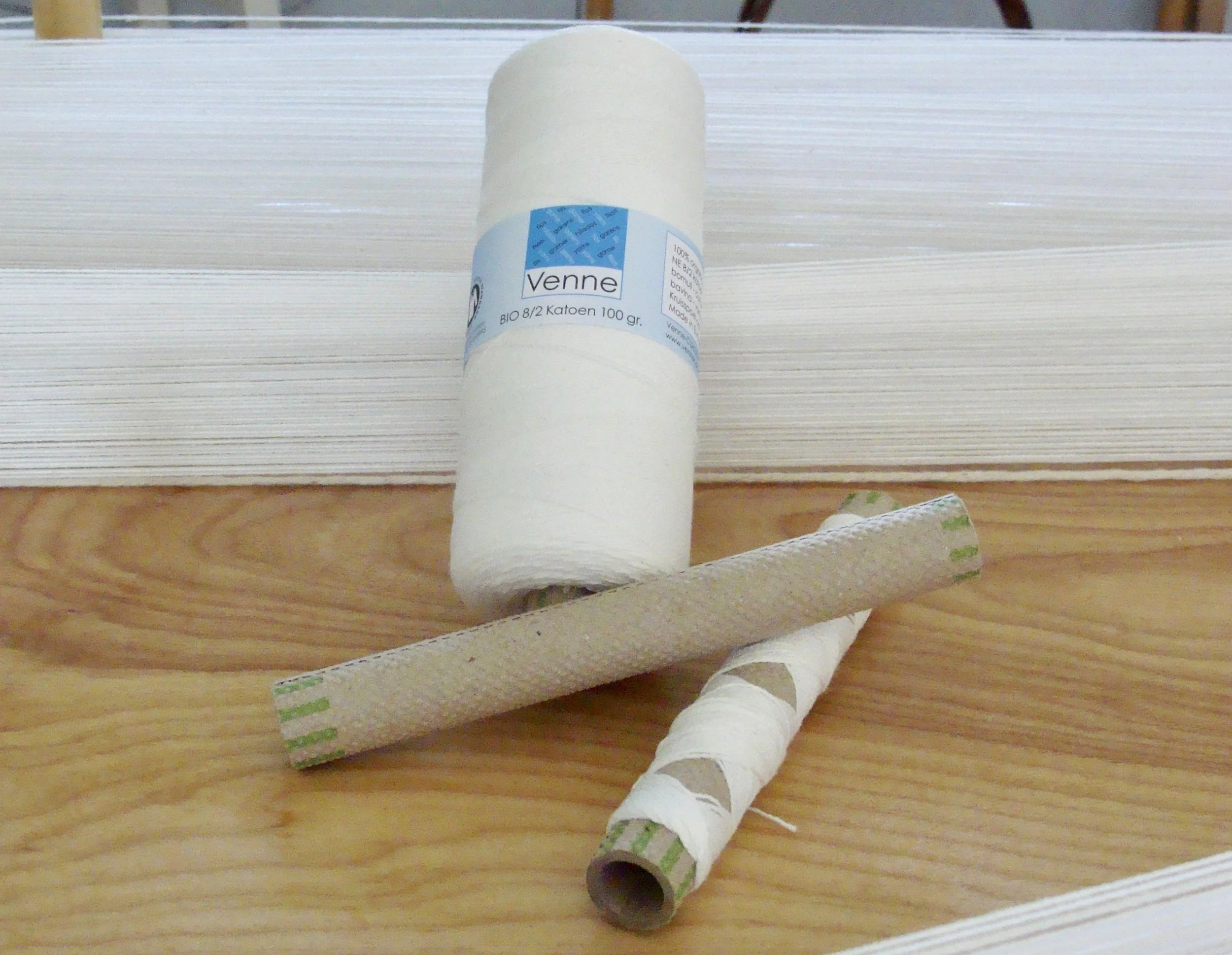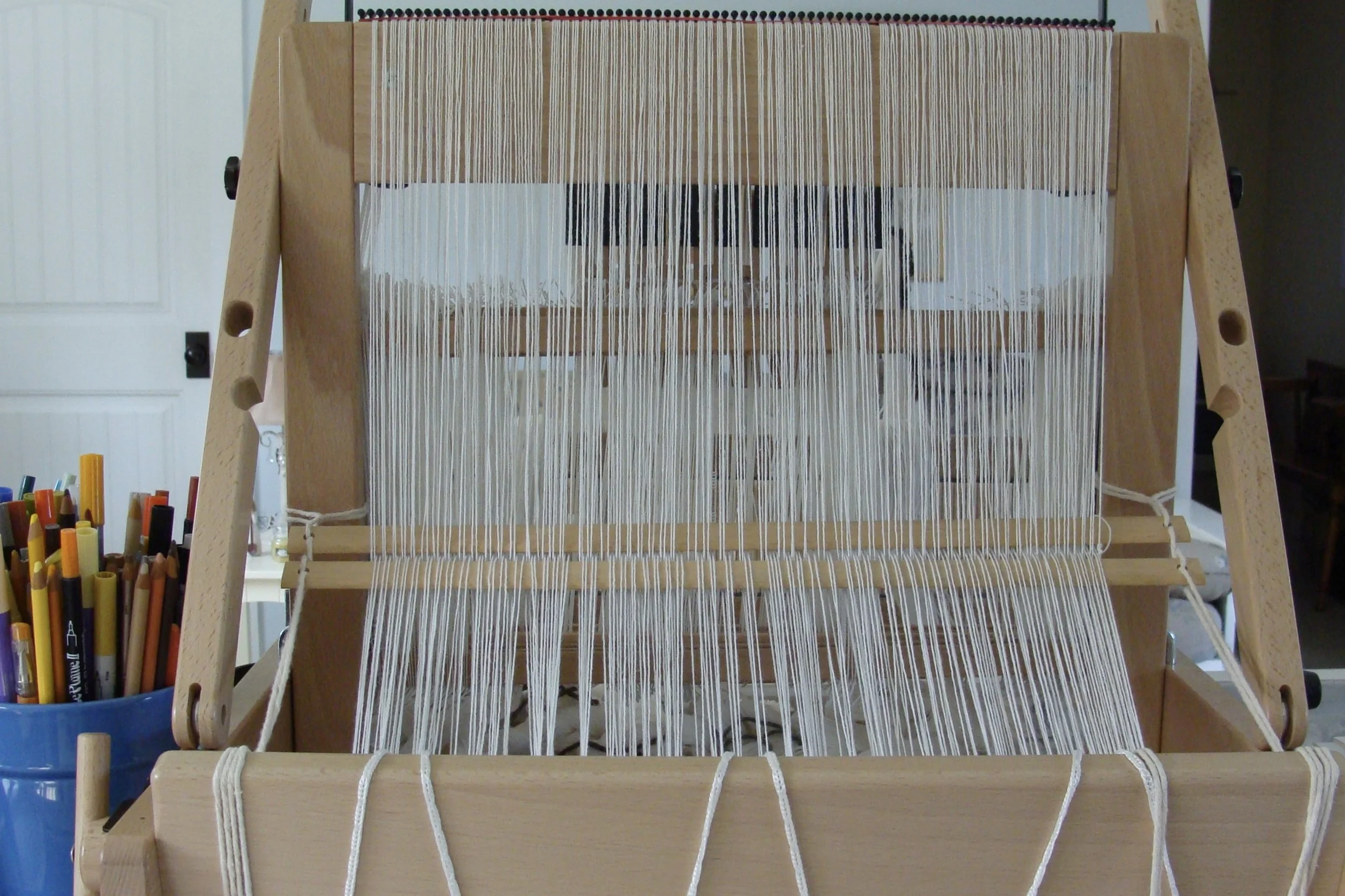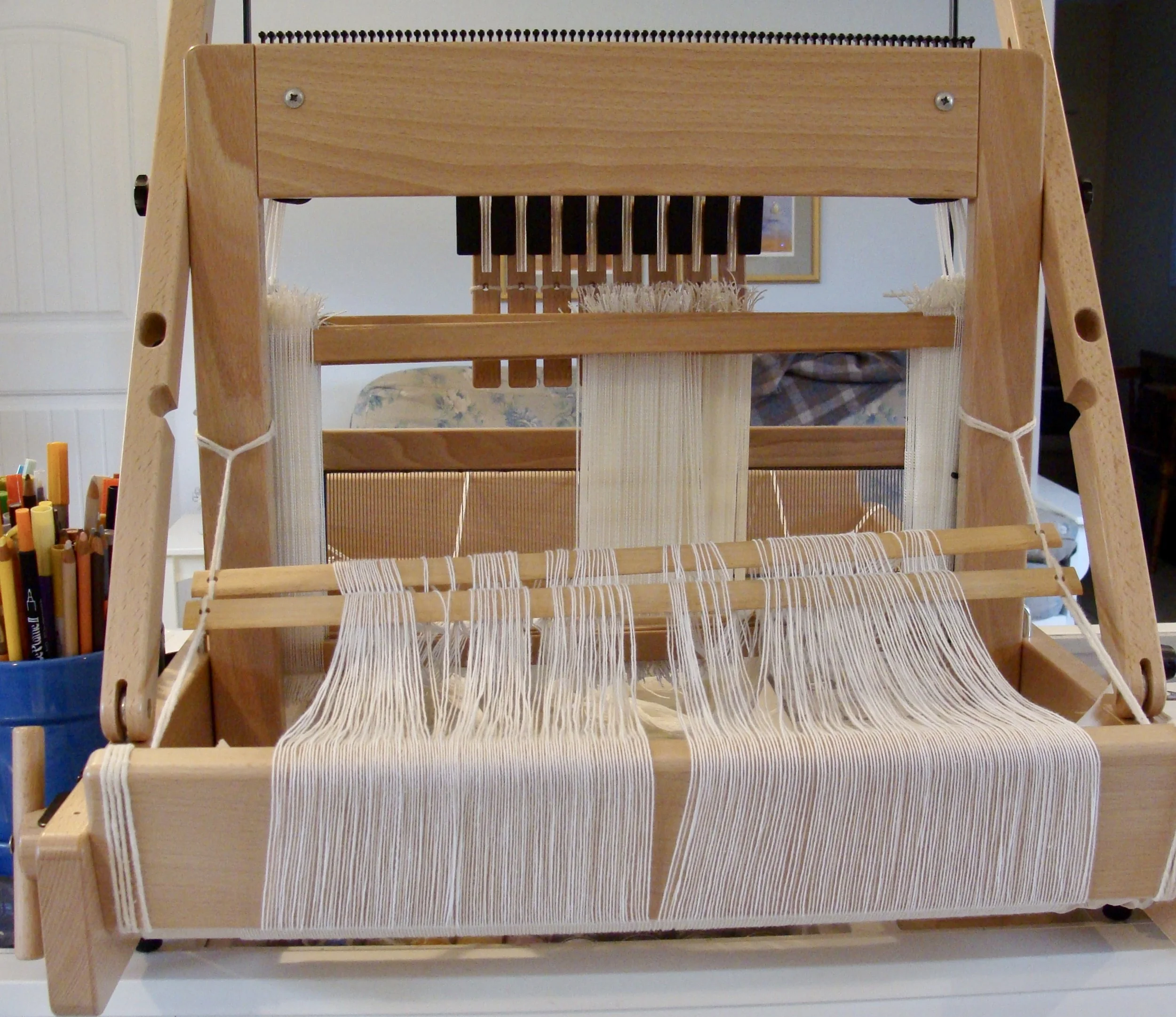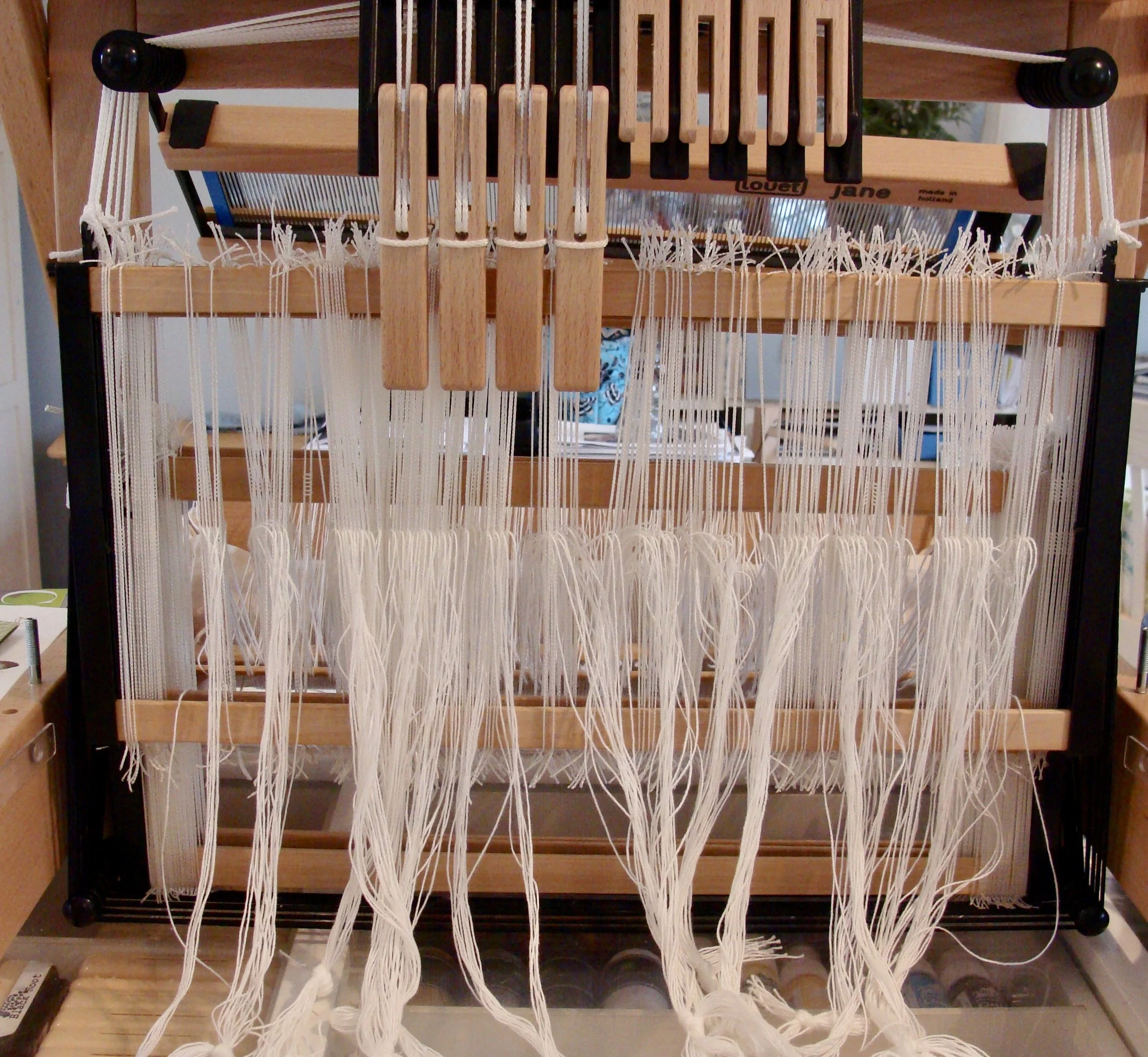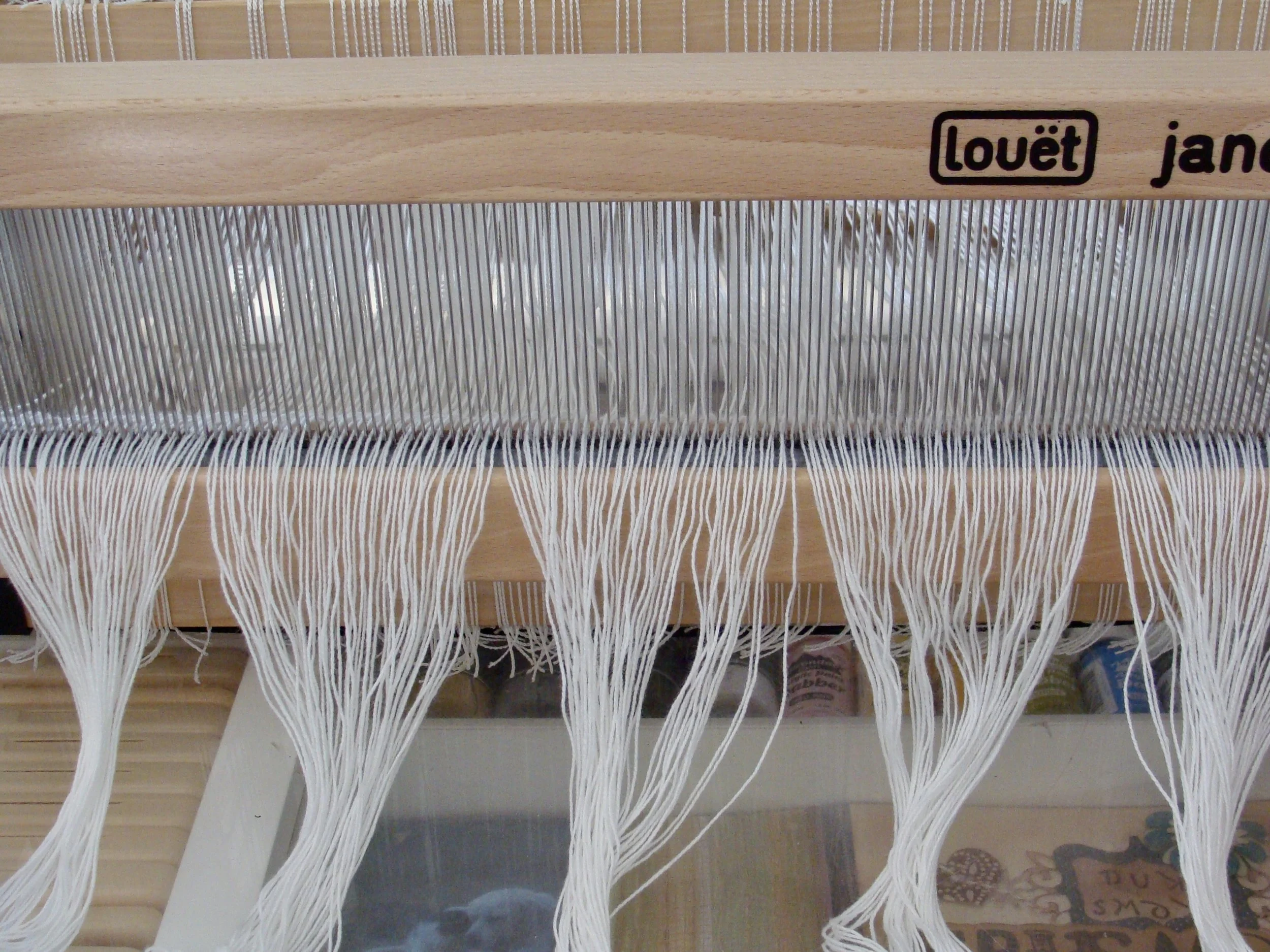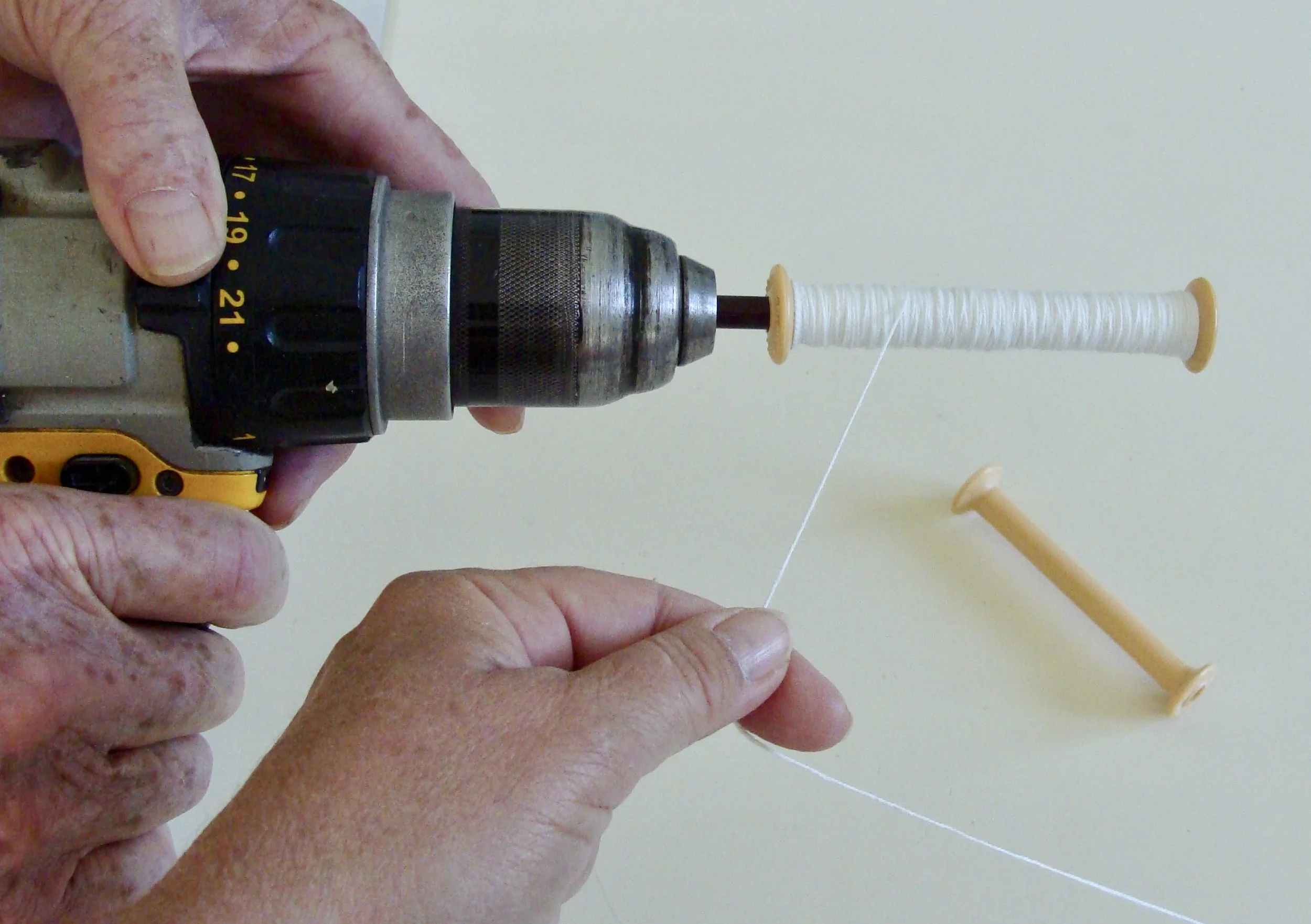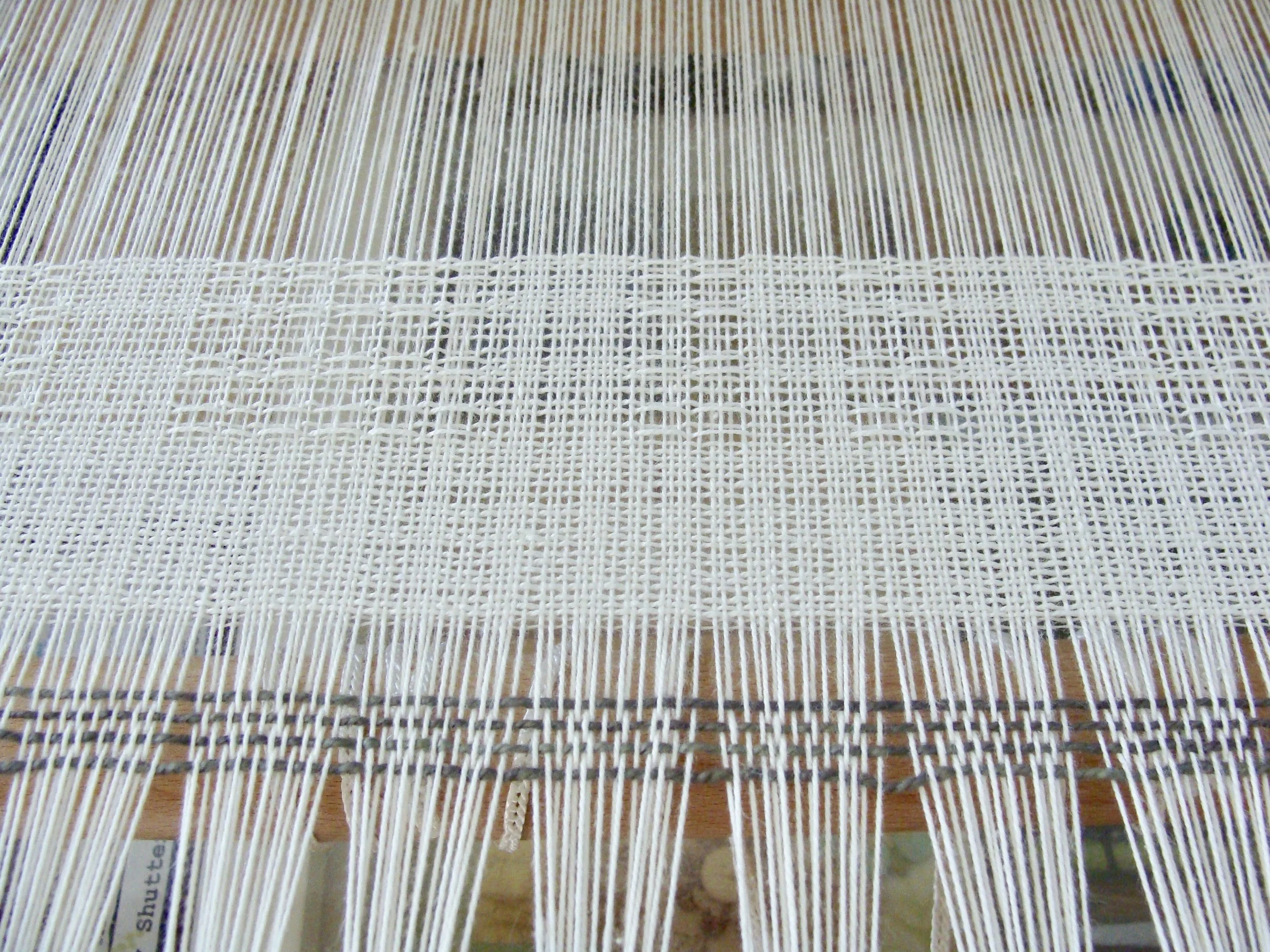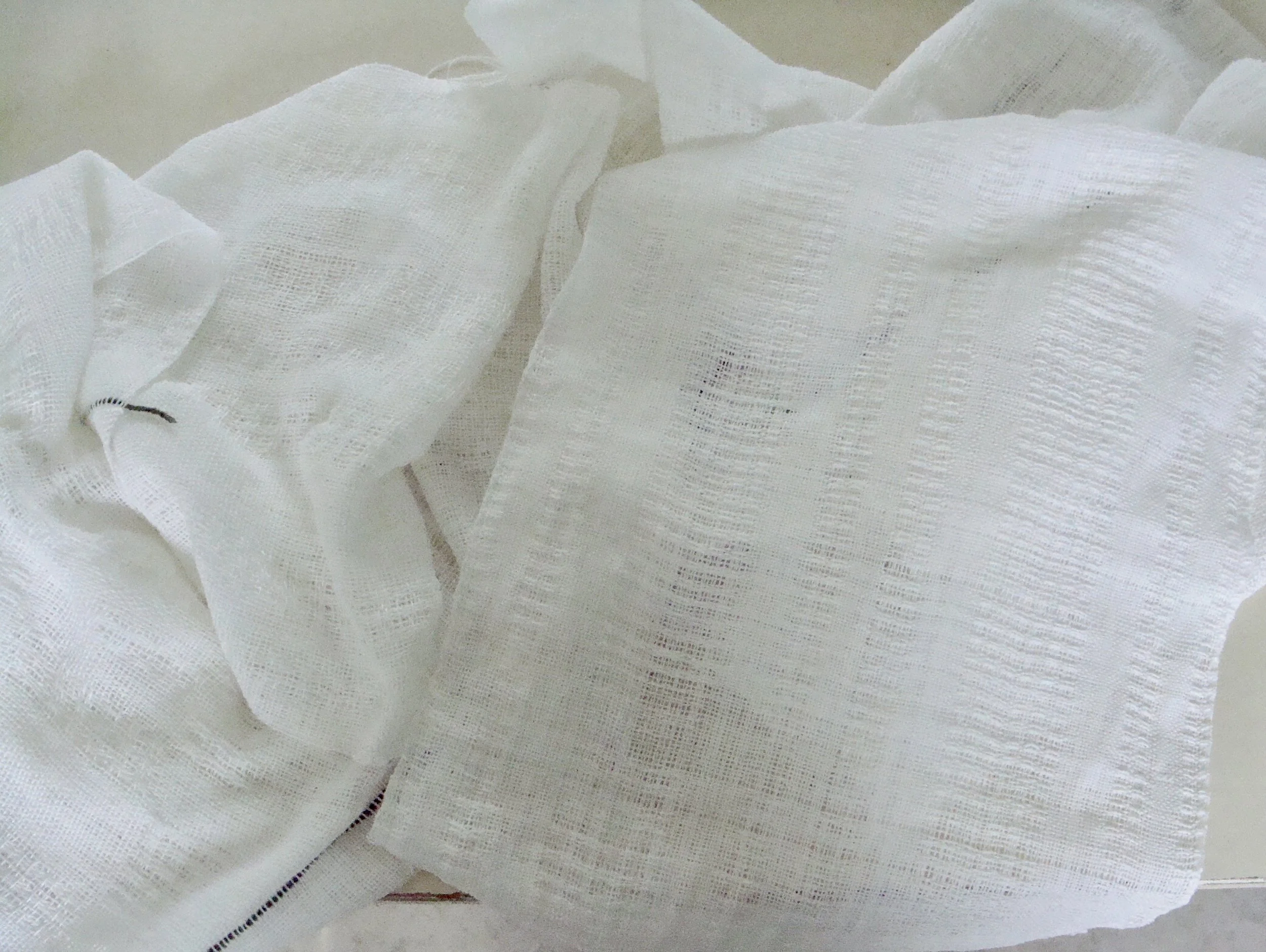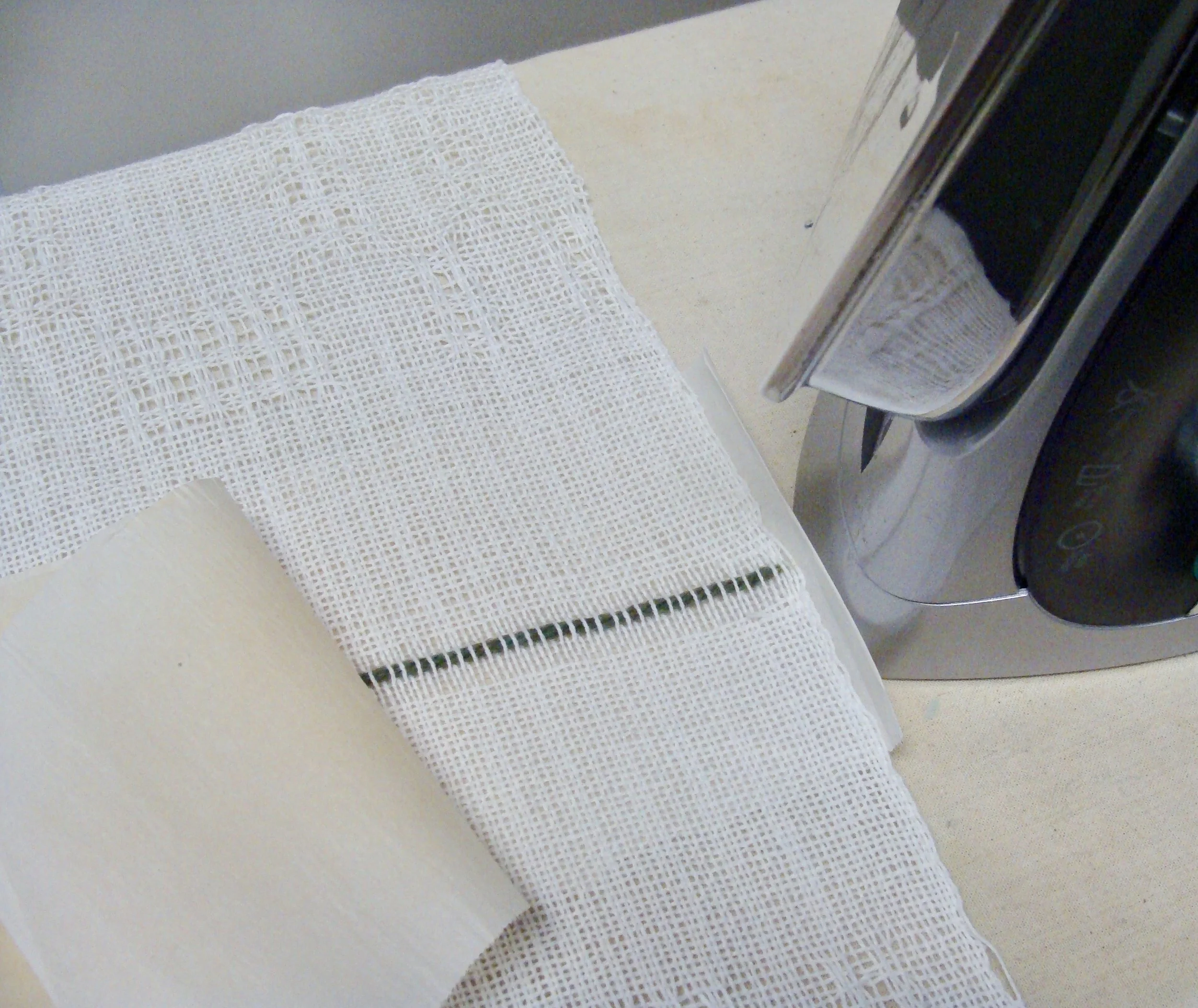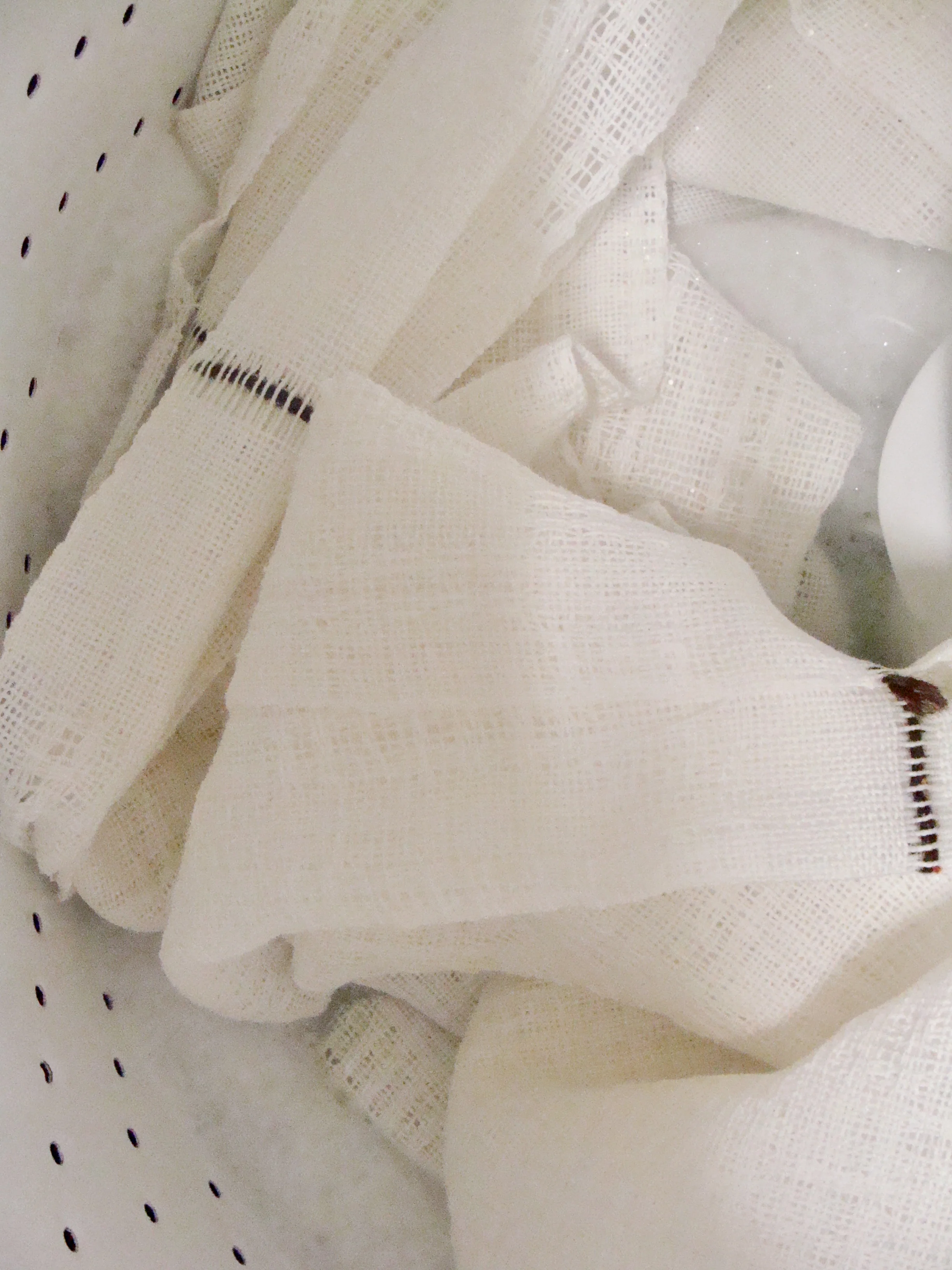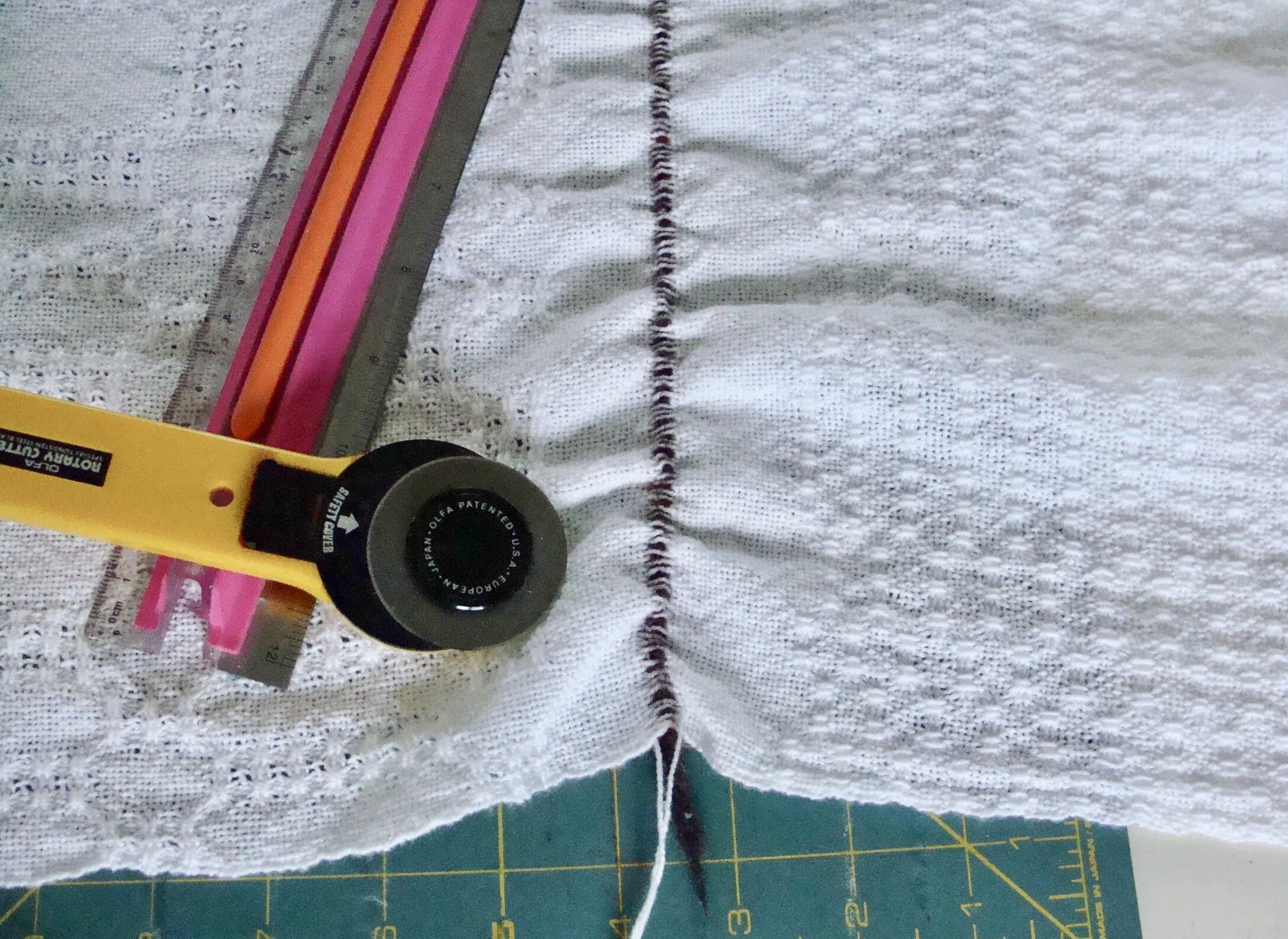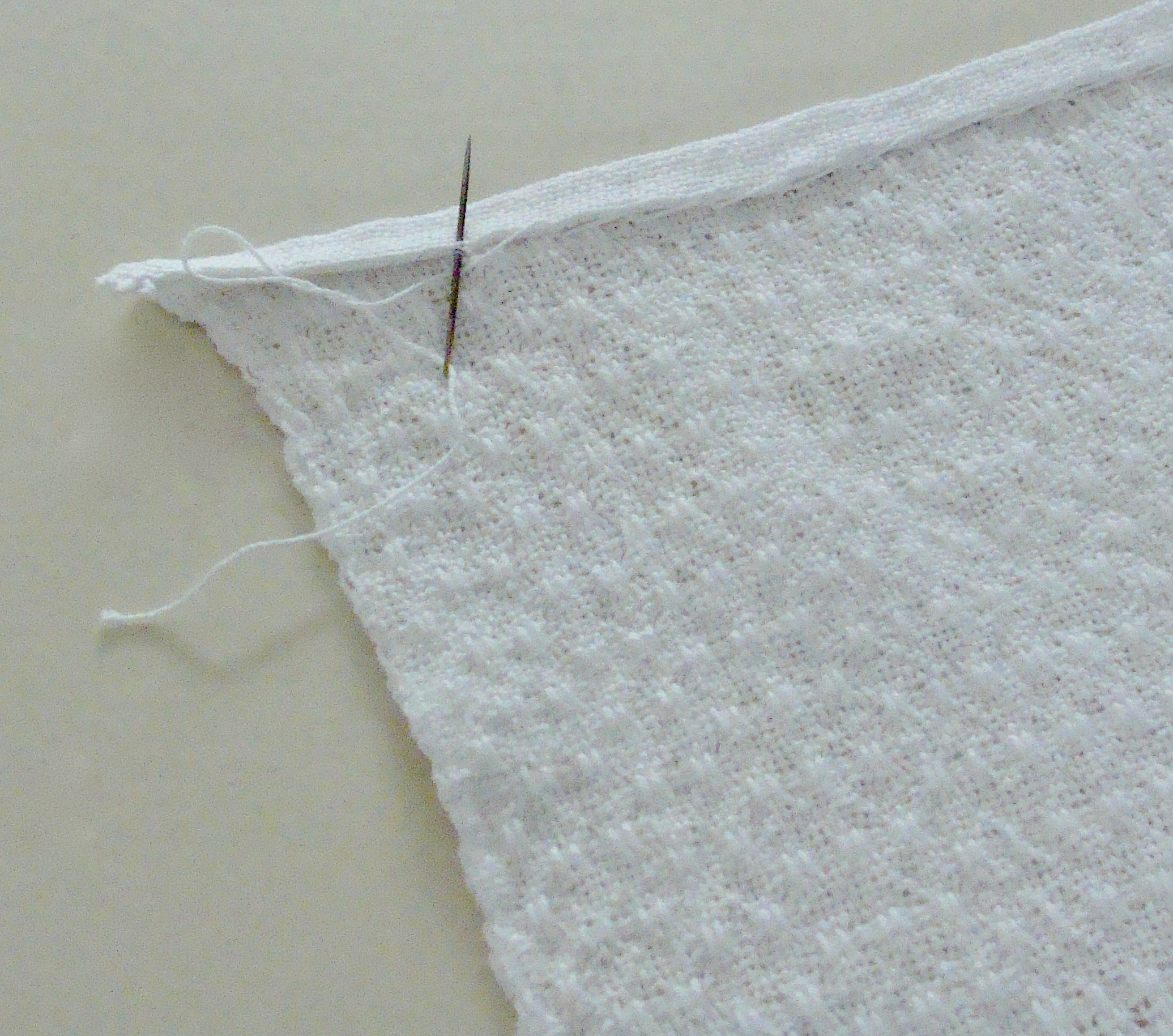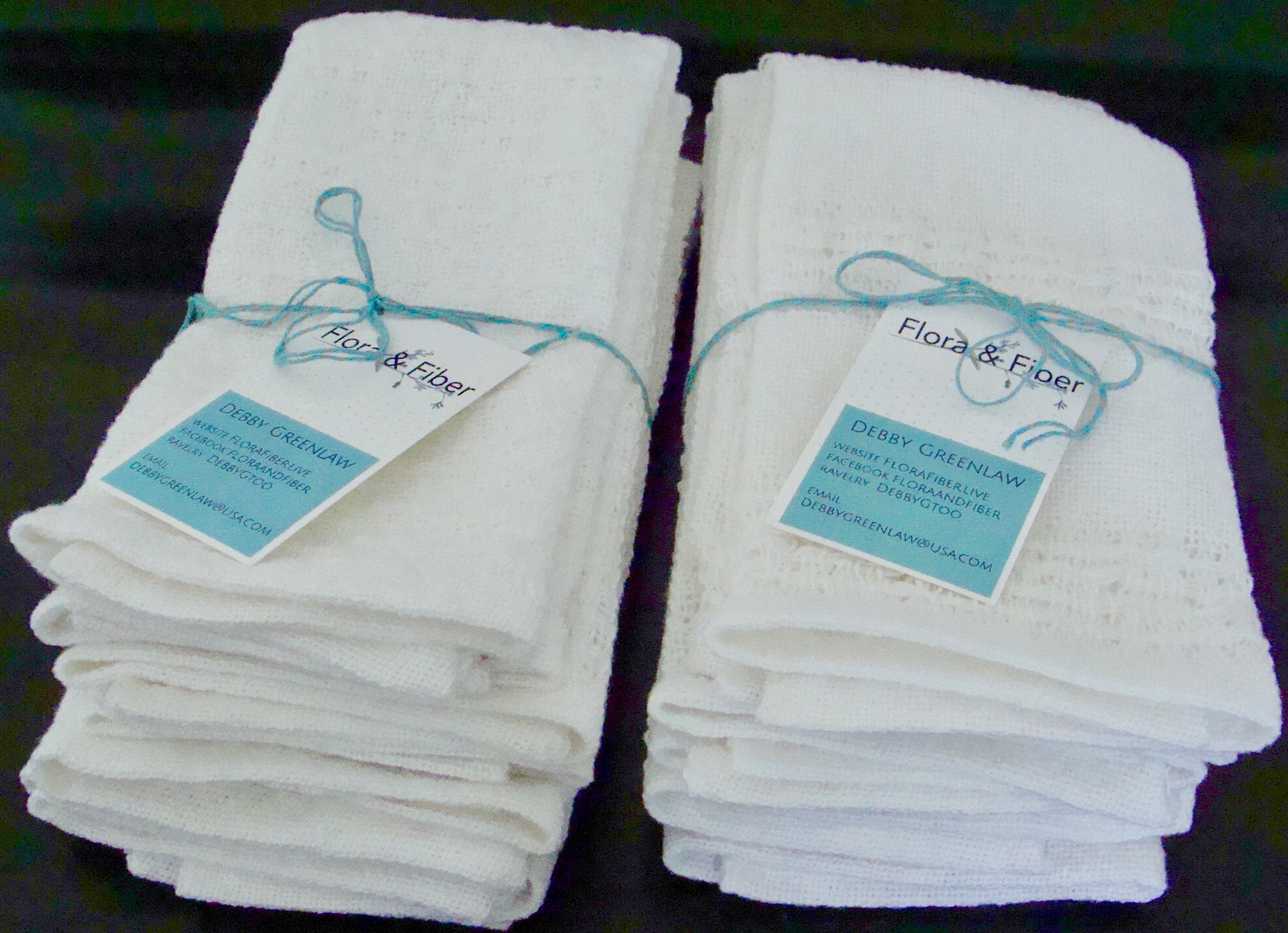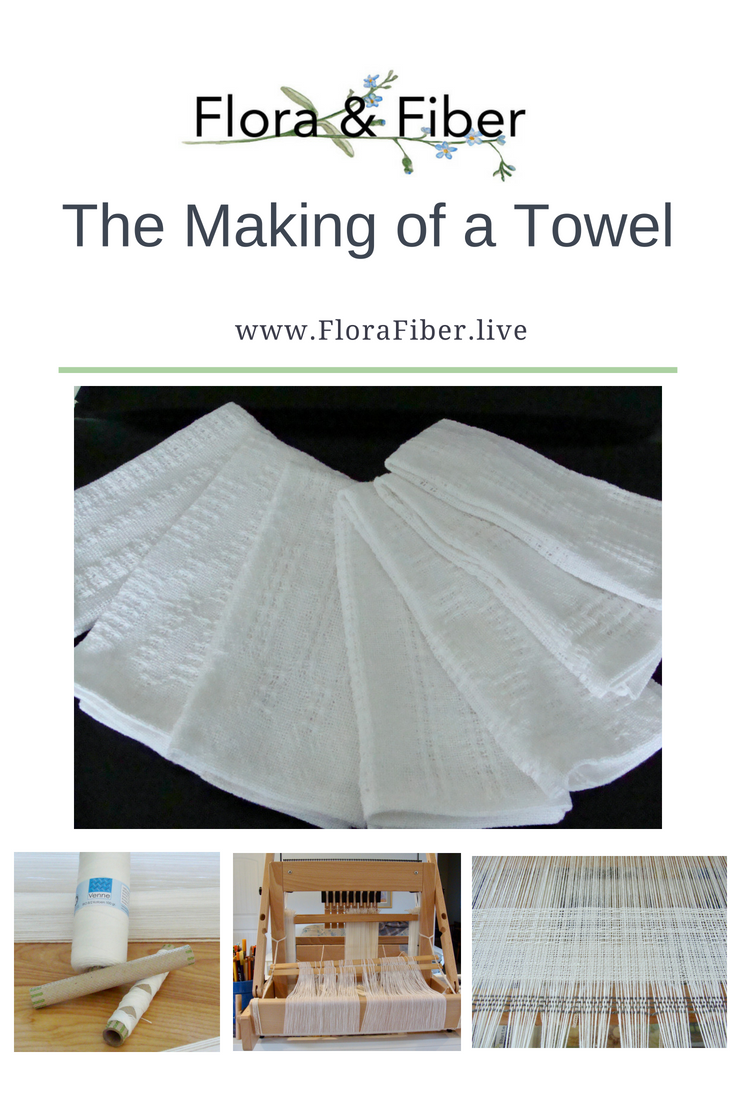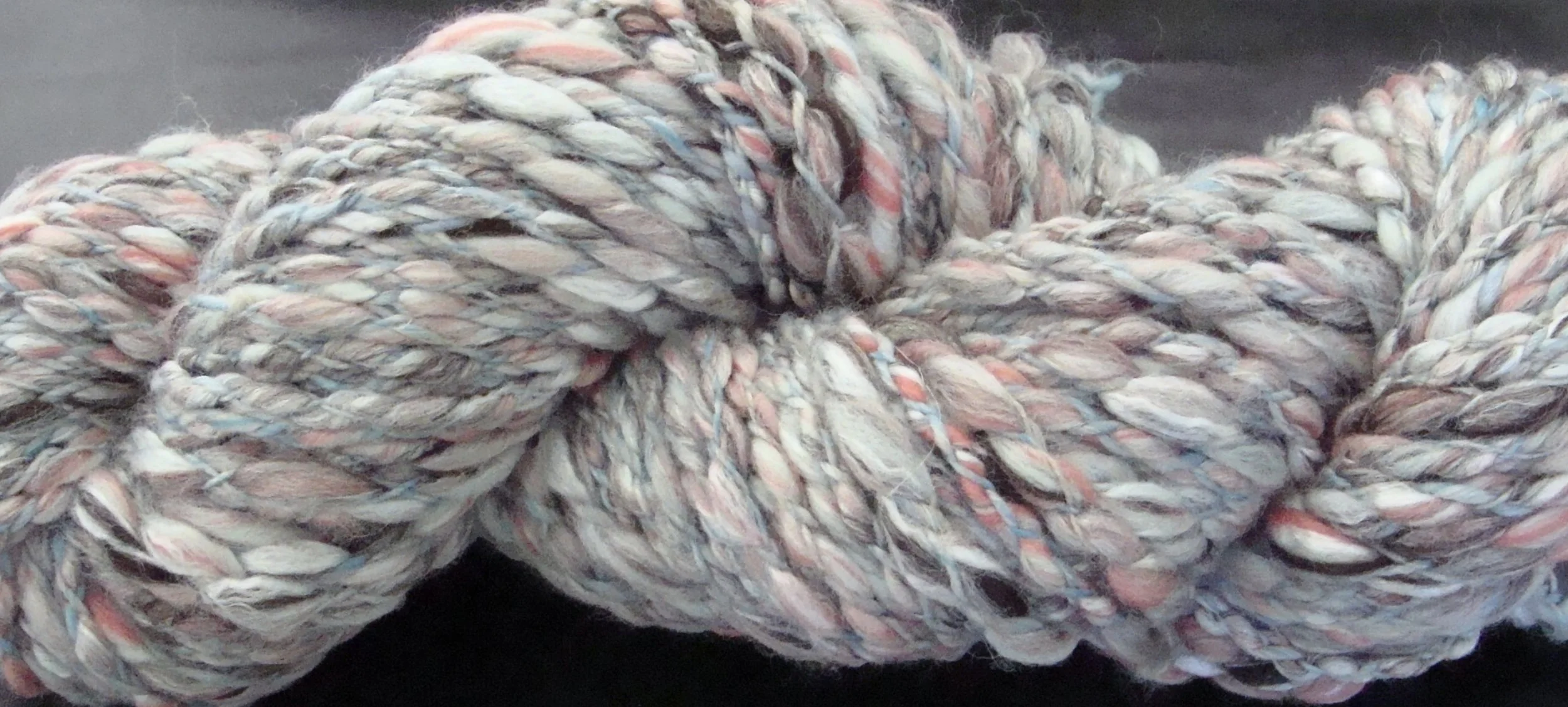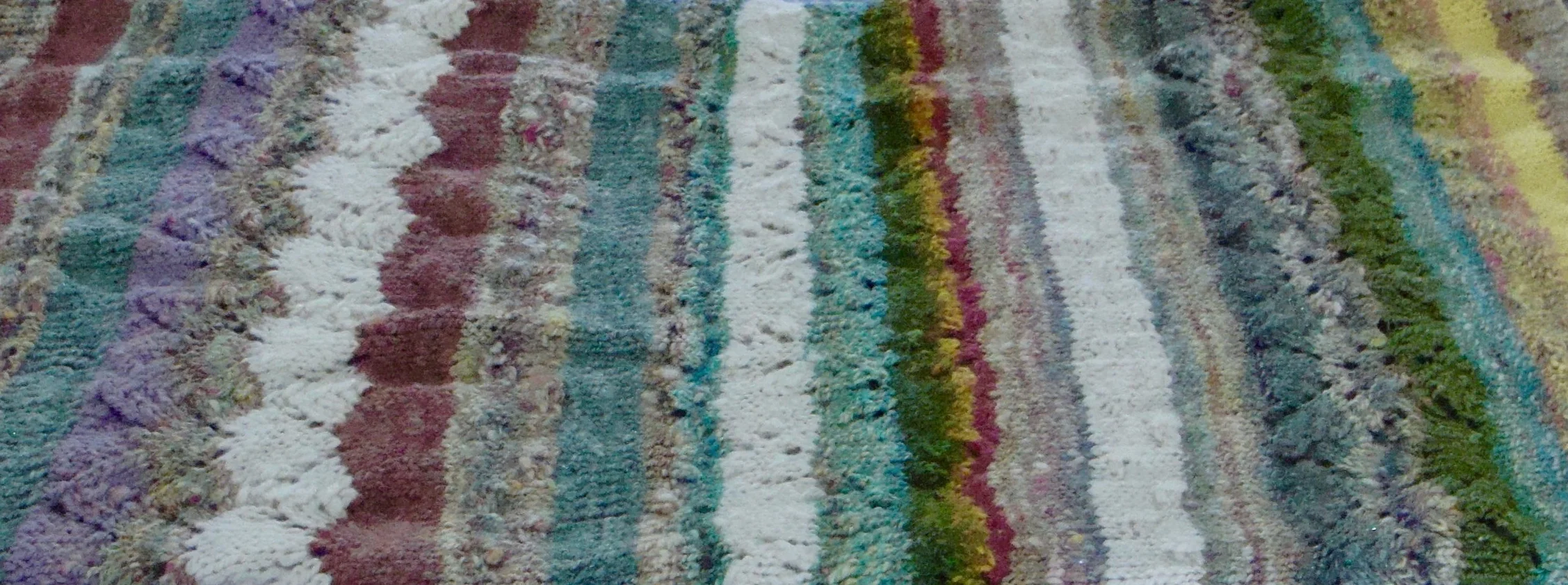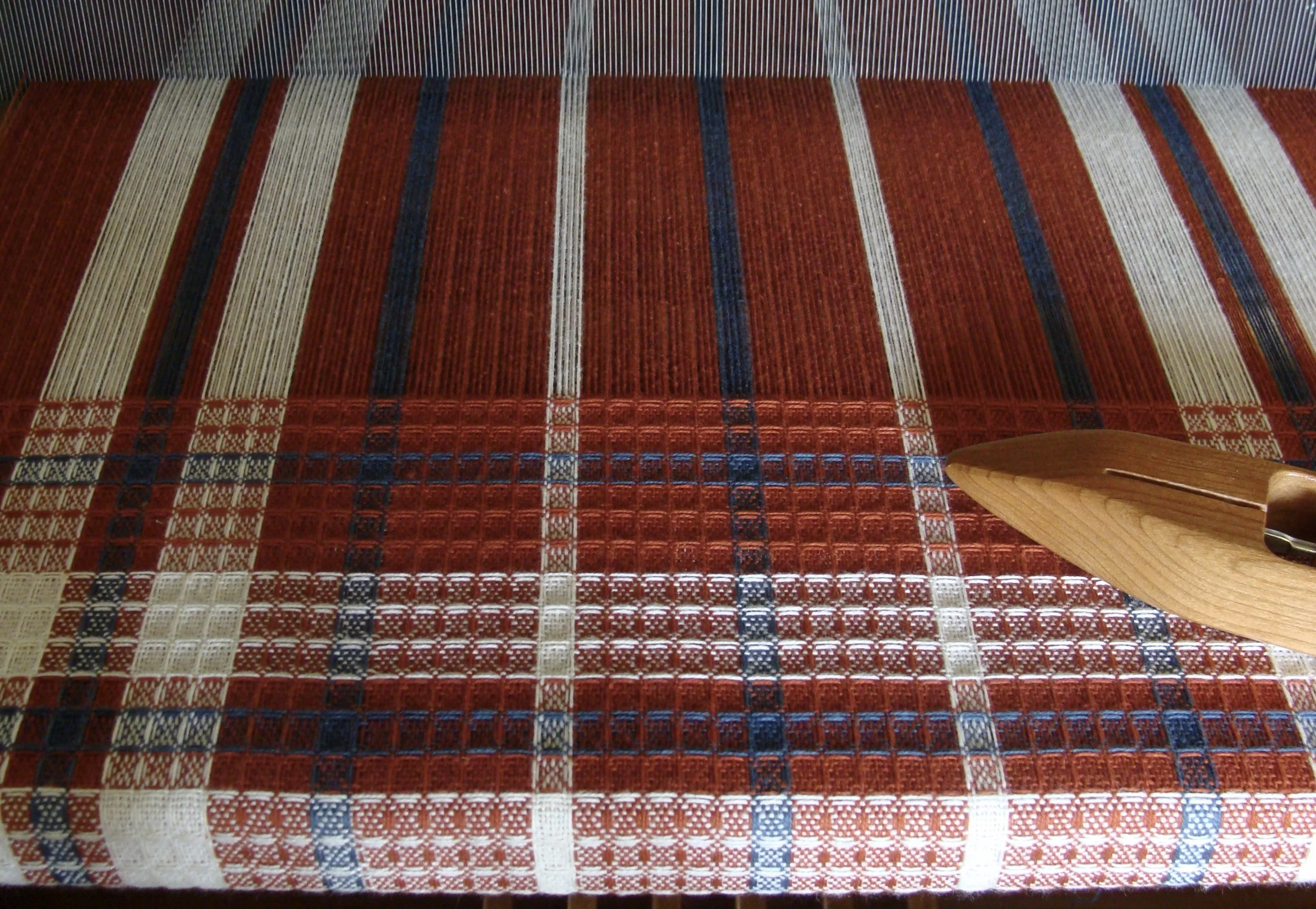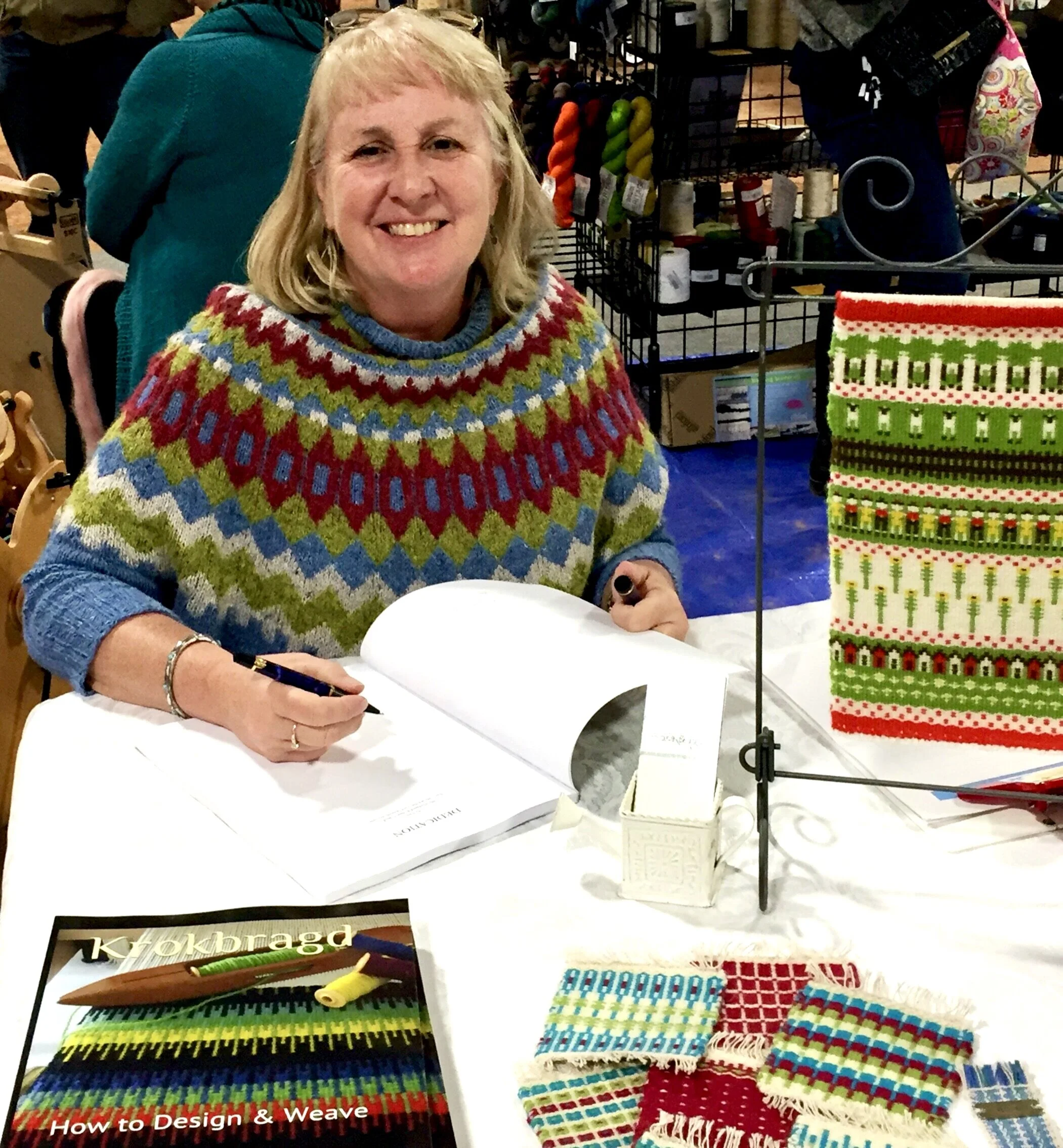The Making of a Towel
Recently I was commissioned to weave guest towels for several customers. For readers who are non-weavers, I thought it might be interesting to illustrate what goes into the making of a 12" x 17" guest towel. It's more than just throwing the shuttle back and forth!
The first step obviously is deciding on the specifics of the project. In this case, I am using Vicki Tardy's Swedish Lace towels published in the January/February 2006 issue of Handwoven magazine.
Next is winding the warp which means measuring out both the length of the warp and the number of ends that will be threaded across the warp. The original project produced 12 finished towels measuring 15" x 18". Since I was making only 8 smaller towels, I calculated and adjusted the warp length and number of ends to 6 1/2 yards and 239 ends. This also meant that I had to redesign the threading order to accommodate having 22 fewer threads in a manner that did not affect the overall lace design.
I used almost 2 cones of white Venne 8/2 Cotton (710 yards/cone).
Now to position 239 warp threads onto the loom without tangling and evenly tensioned.
The warp threads need to be equally spaced across the weaving width. To accomplish this, I use the built-in raddle on the top of my Louet Jane loom.
While maintaining tension, the warp is wound onto the back beam.
Each of the 239 warp ends are threaded through the appropriate heddle on one of four different shafts. This is what will determine the weaving pattern, so the threads must be in the correct heddle in the correct order and not crossed or tangled.
The warp threads are then sleyed (pulled through the slots) in the reed. The reed maintains the appropriate spacing of the threads while weaving. In this project, the spacing (also known as ends per inch or EPI) is 16 threads per inch.
The final warping step is tying the bouts (groups of ends) onto the front beam; you guessed it, maintaining even tension.
The weft threads are wound onto bobbins that will be placed in the shuttle. Although there are commercial bobbin winders for purchase, a pencil stuck into Pete's drill works perfect for me.
Finally, weaving commences. The gray threads at the beginning are waste yarn used to draw the warp threads back into position from tying them on the front beam. They will be removed during the finishing process.
Cranking out the towels now! I used a variety of different treadlings so each towel has a different lace pattern.
A joyful moment is when the 6 1/2 yards of woven fabric comes off the loom.
To separate each towel, I weave three passes of fusible thread, then a contrasting yarn, and then three more passes of fusible thread. When the fusible thread is heat set, it prevents the edges from unraveling when the towels are cut apart.
The entire length of woven fabric is thrown into the washer on gentle cycle and then tumbled dry on the cotton setting. The cotton shrinks a tad which is desirous to allow the lace pattern to become more prominent.
Each towel is cut apart on that contrasting yarn line.
A double hem is pressed in place on each towel.
Then the hems are hand sewn.
Two sets of towels packaged and ready for delivery!
I hope you enjoyed this virtual peek into my weaving studio.
This post contains affiliate links. I may receive compensation (at no added cost to you) if you make a purchase using these links.


